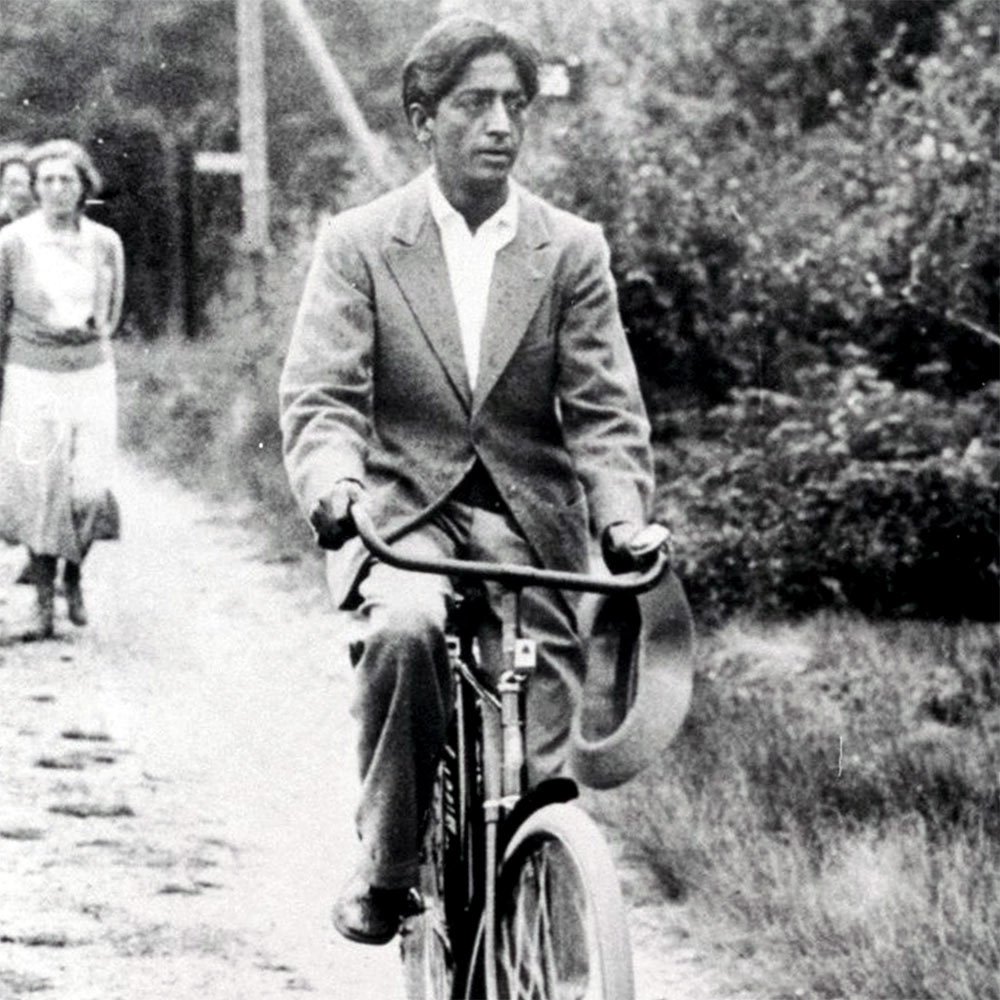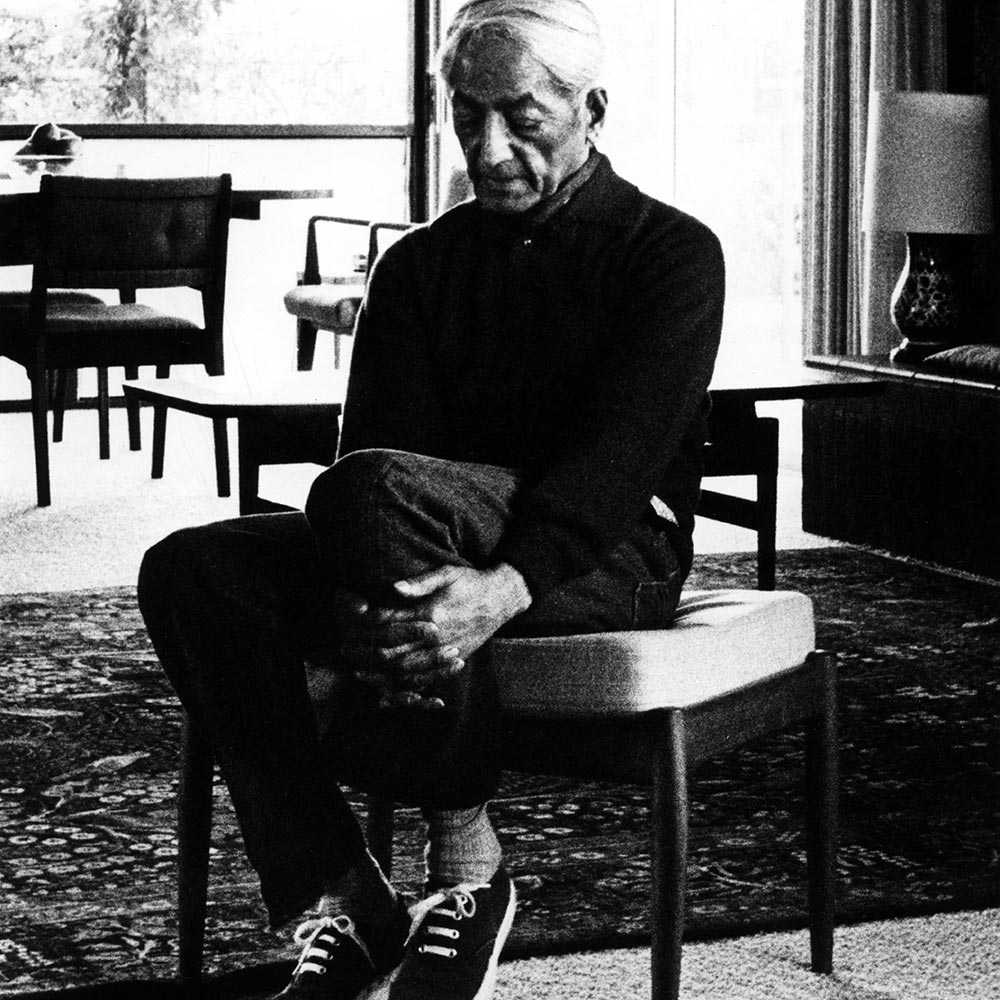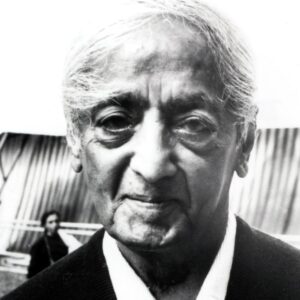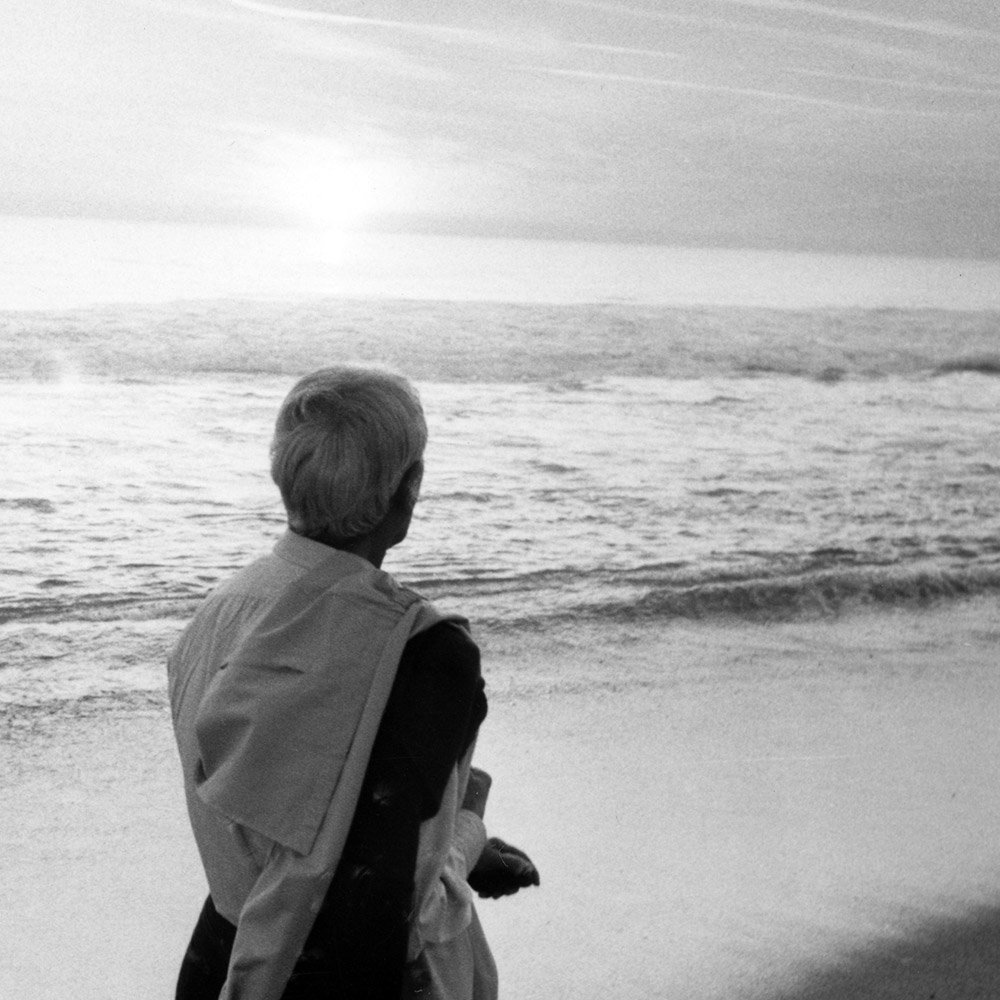
Jiddu Krishnamurti (1895–1986), one of the most profound thinkers of the 20th century, dedicated his life to awakening human consciousness. His teachings, which spanned over six decades, continue to inspire individuals worldwide to seek freedom from the limitations of a conditioned mind.
Born on May 11, 1895, in Madanapalle, Andhra Pradesh, Krishnamurti was the eighth child of a devout family. At the age of 14, he was adopted by Annie Besant, President of the Theosophical Society, who groomed him to be the World Teacher. In a radical move in 1929, Krishnamurti dissolved The Order of the Star, the global organization built around this role, declaring that truth cannot be found through any organization, creed, or dogma.
“Truth is a pathless land. Man cannot come to it through any organization, through any creed, through any dogma, priest or ritual, nor through any philosophic knowledge or psychological technique.”

His Teachings: A Call for Self-Knowledge
Krishnamurti’s teachings focus on the everyday concerns of human life: the challenges of modern society, the search for security, and the need to free oneself from fear, violence, and sorrow. He emphasized self-knowledge through awareness of one’s thoughts, feelings, and relationships, encouraging individuals to observe the movement of their minds without judgment.
Traveling tirelessly until the age of 90, Krishnamurti gave talks, held dialogues, and wrote extensively. He had no permanent home, often staying in Ojai, California; Brockwood Park, England; and Chennai, India. His approach was not that of an authority but of a fellow explorer, inviting others to question assumptions and engage in “thinking together” to uncover life’s fundamental truths.
“You must understand the whole of life, not just one little part of it. That is why you must read, that is why you must look at the skies, that is why you must sing and dance, and write poems and suffer and understand, for all that is life. ”

Jiddu Krishnamurti born May 12 in Madanapalle, Andhra Pradesh, India
Krishnamurti’s mother dies
Krishnamurti family moves to Chennai, India, where he attends high school, marking a shift in his environment.
Adopted by Annie Besant and Charles Leadbeater of the Theosophical Society, a pivotal moment in his spiritual journey.
Publishes At the Feet of the Master under the mystical name “Alcyone,” gaining early recognition.
Order of the Star in the East founded with Krishnamurti as its head, proclaiming him as the coming World Teacher.
Experiences the beginning of “the process” in California, a transformative spiritual event.
Brother Nityananda dies unexpectedly, deeply affecting Krishnamurti.
Proclaimed as the World Teacher, declaring, “I am the flame,” solidifying his role in the Theosophical narrative.
Dissolves the Order of the Star in the East on August 2 at Ommen, Holland, rejecting the messianic role and advocating personal freedom.
Meets Mahatma Gandhi, an encounter that highlights differing philosophical perspectives.
Resides in Ojai, California, beginning the Commentaries on Living series, influenced by Aldous Huxley.
Opens a school in Ojai, California, reflecting his commitment to education and holistic learning.
Physicist David Bohm reads Krishnamurti, initiating a significant intellectual partnership exploring consciousness.
Jiddu Krishnamurti dies on February 17 in Ojai, California, marking the end of his influential life.
The Krishnamurti Foundation India: Preserving the Teachings
The Krishnamurti Foundation India, Kolkata, is part of the global network of Krishnamurti Foundations entrusted with preserving and disseminating Krishnamurti’s authentic teachings. As he envisioned, the Foundation ensures that his work remains undistorted and free from sectarianism or worship.
“The Foundations will see to it that these teachings are kept whole, are not distorted, are not made corrupt. They will not give rise to any sectarian spirit in their activities… nor create any kind of place of worship around the teachings or the person.”
Through books, audio-visual resources, and dialogues, the Foundation makes Krishnamurti’s vast body of work—spanning talks, writings, and discussions—accessible to people across the world in multiple languages.

Join Our Mailing List
At the Krishnamurti Foundation India, Kolkata, we are committed to sharing Krishnamurti’s vision of a mind unburdened by conditioning, fostering inquiry, and promoting dialogue that leads to self-understanding and transformation. We invite you to explore his teachings and join us in this journey of discovery.

